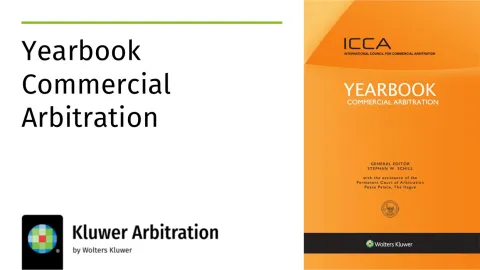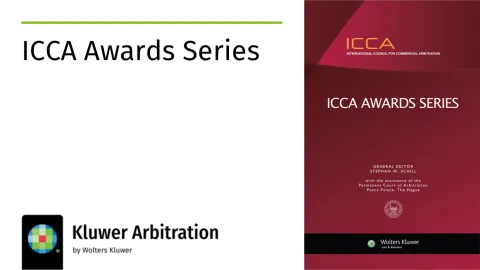Emergency Arbitration under Ecuadorian Law: Is Noise Treatment Required?
November 10, 2025
Daniel Kahneman, Nobel laureate in economics, in Noise: A flaw in human judgment defines “noise” as unwanted variability in judgments. Whereas biases are systematic errors, noise refers to similar cases having different assessments or outcomes. If judges are generally more lenient with well-behaved suspects, their decisions are biased. But if one judge imposes a two-week prison sentence for a counterfeit check and another judge imposes a 20-year prison sentence for an identical crime, those rulings are noisy.
Is emergency arbitration in Ecuador in need of noise treatment? Some recent emergency decisions in Ecuador would seem to suggest so.
Emergency arbitration has gained prominence in Ecuador as of late. In the wake of a severe energetic crisis that impacted the country in 2024, CELEC, the public agency tasked with distributing energy, entered into two contracts with Progen Industries LLC (“Progen”) and one contract with Austral Technical Management (“ATM”) for the installation of thermoelectrical powerplants.
Progen was in charge of the construction of two power plants, one in Salitral, for the provision of 100MW, and another in Quevedo, for the provision of 50MW. The price of the Salitral contract was USD 99.4 million. (CELEC had paid almost USD 70 million as of June 2025). The price of the Quevedo contract was USD 49.7 million. The generators were supposed to be operational in November 2024, later amended to a 120-day period counted from September 2024.
Austral Technical Management (“ATM”) was in charge of the installation of a 91MW powerplant in Esmeraldas for the price of USD 89.9 million. The generators were supposed to begin operating in January 2025. That deadline was later amended to April 2025. As of May 2025, CELEC had paid ATM USD 71.4 million.
This year, CELEC moved to unilaterally terminate the two contracts with Progen and fined ATM for some alleged breaches. Several emergency arbitrations ensued. The results of those proceedings varied greatly, thus posing questions about the suitability of emergency arbitration in case of public contracts. Also, those dissimilar decisions cast doubts on whether emergency arbitration in Ecuador is noisy.
A primer on emergency arbitration under Ecuadorian law
The Arbitration and Mediation Law (“AML”) bestows upon the arbitrators with the power to grant emergency relief. Arbitrators enjoy wide discretion when deciding the appropriate measures to apply. They even have the power to directly enforce the emergency decisions if the parties agree.
Nonetheless, doubts lingered regarding whether emergency arbitration was possible under the AML. Even if emergency arbitration has never been expressly forbidden, some questions remained unanswered, such as the nature of the decisions rendered by emergency arbitrators.
Since their enactment in 2021, Article 8 of the Rules for the Application of the AML (“Rules”) provides for the possibility of emergency arbitration. Some arbitration institutions in Ecuador amended their rules to that effect. Section X of the Rules of the Arbitration and Mediation Center of Quito’s Chamber of Commerce (“CAM Rules”), in force since 2023, states that the emergency arbitrator has jurisdiction to grant any measure deemed necessary to maintain the status quo, preserve evidence or guarantee the enforcement of the final award. The emergency award must be enacted within 15 days after the arbitrator accepts his appointment. The arbitral tribunal is not bound by the emergency decision. AMCHAM Arbitration Rules provide for a similar treatment.
The AML does not expressly state the applicable standards for interim relief, but arbitrators frequently refer to the requirements set forth in the civil procedure legislation: the applicant must show a reasonable likelihood of prevailing on the merits (fumus boni iuris) and the risk of serious harm (periculum in mora).
In the case of emergency arbitration, CAM Rules state that arbitrators should consider the appropriateness of granting the measures being requested. AMCHAM Rules require the relief to be urgent, meaning that it cannot wait for the constitution of the tribunal. Ecuadorian experience in emergency arbitration is thus generally in line with the emergency arbitration practice with the most popular international arbitration rules, such as ICC, SIAC and SCC.
Is ex parte relief available?
The Seventh Edition of the SIAC Arbitration Rules, in force since January 2025, introduced provisions on Protective Preliminary Orders (“PPOs”). PPOs enable claimants to obtain immediate ex parte protection to ensure the effectiveness of the requested emergency relief. These orders are intended only as short-term measures: they expire 14 days after issuance, unless subsequently confirmed, amended, or substituted by the emergency arbitrator after both parties have had an opportunity to present their case.
A similar order was granted in one of the recent CELEC cases administered under the AMCHAM Arbitration Rules. Since ex parte relief is not expressly contemplated under the AML or its Rules, the possibility of granting such measures could raise issues similar to those that once surrounded the admissibility of emergency arbitration. While there is no prohibition against granting such measures, their nature and applicable procedure may still warrant further analysis.
Is emergency arbitration suitable for public contracts?
There is an ongoing discussion in Ecuador about the convenience of public entities agreeing to emergency arbitration proceedings, given the short timeframes of emergency arbitration and the enormous societal relevance of public contracts. The issue becomes even more sensitive in cases involving ex parte relief.
In Ecuador, interim relief before local courts may prove ineffective, as judicial timeliness rarely accommodate urgent matters. Excluding emergency proceedings from arbitration with the public sector could undermine the effectiveness of the arbitral process, since procedural delays may ultimately prevent the enforcement of the final award.
However, to safeguard the State’s interests, requiring a security —as allowed under rules such as those of CAM and AMCHAM— can serve as a useful mechanism, though it remains uncommon in international practice.
The cases of Progen and ATM
On June 2025, CELEC initiated the proceedings to unilaterally terminate the contracts with Progen. Also, CELEC imposed fines to ATM for more than USD 23 million for alleged delays in installing the generators.
Progen initiated two emergency arbitrations under the auspices of AMCHAM Rules: one for the Salitral contract and another for the Quevedo contract. In one of those cases, the emergency arbitrator issued an ex parte order forbidding CELEC from terminating the contract until a decision on the application was made.
In both cases, after concluding he had prima facie jurisdiction to rule on the applications, the arbitrator analyzed if Progen had a reasonable probability to prevail on the merits. The arbitrator concluded that Progen failed to meet the fumus boni iuris requirement since the company had yet to install the generators almost 1 year after the contracts were signed. There was no need to conduct an analysis about the periculum in mora, urgency or proportionality of the measures requested by Progen.
ATM’s emergency arbitration had a different outcome. CELEC argued that ATM acquired faulty equipment with systematic failures, since most generators were unsuitable for the Ecuadorian electrical grid. Nonetheless, ATM argued that CELEC approved the delivery of the generators that were being installed. Further, according to ATM, all the necessary changes were being made to make the generators operational. The arbitrator ruled in ATM’s favor. He ordered CELEC to refrain from initiating any unilateral termination proceedings and not to collect any fine pending the final award.
Those decisions are provisional in nature and may have no bearing on the tribunals that will rule on the merits. Nonetheless, the most important difference between the Progen and ATM cases is whether the emergency arbitrator considered the applicant to be at fault. The arbitrator in the two Progen cases found the company’s explanations for the delays in installing the power plants unsatisfactory, whereas the arbitrator in the ATM case concluded the company was responsible for no contractual breach.
Conclusion
The cases involving ATM and Progen leave many important lessons in the development of emergency arbitration in Ecuador. First, emergency arbitration does provide effective recourse for claimants that need urgent relief pending the constitution of the arbitral tribunal. Second, the current rules are suitable for public contracts, where a timely emergency decision is of the essence. Finally, there seems to be a general agreement about the applicable admissibility requirements. Hence, no noise treatment is required for emergency arbitration in Ecuador: It all comes down to the minutiae of the factual background of each case.
You may also like









